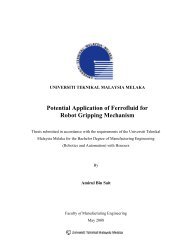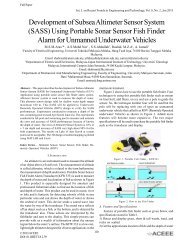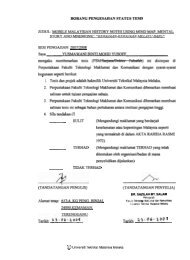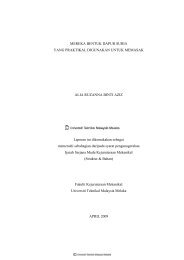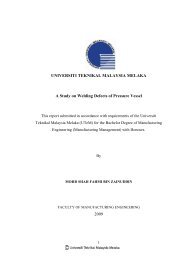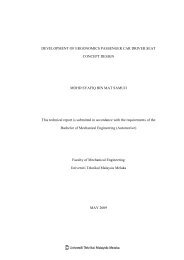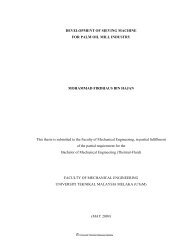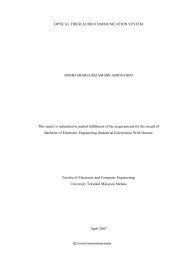Brand, Identity and Reputation: Exploring, Creating New Realities ...
Brand, Identity and Reputation: Exploring, Creating New Realities ...
Brand, Identity and Reputation: Exploring, Creating New Realities ...
Create successful ePaper yourself
Turn your PDF publications into a flip-book with our unique Google optimized e-Paper software.
p.31) consumers tend to those sources of information that are consistent with their existing viewpoints. In this sense,<br />
they confirm the theory of selective perception <strong>and</strong> the view that the most likely effect of communication, including<br />
mass media, are going to reinforce existing opinions, attitudes <strong>and</strong> behavioral tendencies. When choosing a tourism<br />
destination there is a set of different destination alternatives considered during the decision-making process: evoked set,<br />
excluding, alternative, inaccessible, dreaming <strong>and</strong> known set of destinations (Decropp, 2006).<br />
For research is the most complex <strong>and</strong> interesting affective decision-making process because it is holistic in nature (the<br />
decision is made on the basis of expected emotions <strong>and</strong> visualization of possible experiences, often based on<br />
recommendations). The recommendation is one way of sense-targeting the consumer by visualizing the destination<br />
through their personalities (the identification with a destination).<br />
Although consumers generally are more esteeming the quality of tangible products, we should never neglect the product<br />
br<strong>and</strong> <strong>and</strong> lifestyle that is associated with (Gobe, 2008). Thus, two decades ago Sirgy (1982) concluded that consumers<br />
evaluate a product in relation to their personality, whereas the product image shares certain degree of similarity with the<br />
image of the individual. Malhotra (1988) presented the results where consumers are more guided by an ideal which they<br />
have of themselves than the actual situation, to which were later linked Hong <strong>and</strong> Zinkhan (1995) pointing out that it<br />
was the ideal of self-preference indicator of adopting a certain br<strong>and</strong>. Also, Daniel Miller (as cited in Erdei, 2008, p.47)<br />
has explained the essence of his concept of objectification on the following simple way: firstly people produce <strong>and</strong><br />
classify objects, <strong>and</strong> then those the same, culturally classified <strong>and</strong> marked objects (such as those associated with the life<br />
style), produce <strong>and</strong> classify people who use or refuse them. Shimp <strong>and</strong> Saeed (as cited in Morgan et al, 2004, p.41)<br />
introduced the term Country equity referring to the emotional value that emerges as a result of consumer's associations<br />
for the br<strong>and</strong> destinations.<br />
In addition to the many authors who have studied the phenomenon of loyalty, Oppermann (2000) notes that as many<br />
times as tourists visit a certain destination, it was more likely to come back again. Thus, the Denison <strong>and</strong> Knox (1992)<br />
concluded, in order to save time, the loyalty of tourists is rapidly increasing. This trend reflects the intention of revisit<br />
destination, i.e. the same which has proved its quality in the previous visit.<br />
Methodology<br />
The topic of this research is perception of tourist toward chosen tourism destination, the impact of communication<br />
marketing media <strong>and</strong> external stimuli that affect the process of selecting holiday destination. The significance of this<br />
research is reflecting in definition of stimuli that influence on tourists on different ways, depending on whether they<br />
first travel to Greece or many times before. Some testing were performed that approved the theory of satisfaction which<br />
says that satisfaction occurs in case when tourist expectations are prevailed by tourist experience, as well as experience<br />
of the highest level of satisfaction leads to revisit <strong>and</strong> recommendation to the others (Cronin <strong>and</strong> Taylor, 1992). Our<br />
study involved total 740 participants in Serbia (Belgrade, Novi Sad, Nis) which were under survey in period July<br />
/August 2009., in the course of their trip to Greece.<br />
The questionnaire has had four parts: The first one, comprised volume of questions related to demographic<br />
characteristics of respondents (place where completed the payment of arrangement, age, <strong>and</strong> average income). The<br />
second volume of questions comprises such that reflect the image of destinations, or define the tourist‘s experience of<br />
Greece br<strong>and</strong>. The third volume comprised open questions that more involved the respondents into research <strong>and</strong><br />
investigating their intentions <strong>and</strong> expectations regarding future choice of tourism destination. The last, fourth part is<br />
related to the organization of trips <strong>and</strong> length of stay.<br />
Assuming Aaker, Kumar <strong>and</strong> Day (2008) that attitudes announce behaviour <strong>and</strong> it is easier to ask questions about<br />
attitudes than to observe <strong>and</strong> interpret the actual behaviour, data collection is used for measuring consumer attitudes,<br />
<strong>and</strong> scale (shown in Figure 1). The fact is that people do not make decisions on reality (with regard to tourism services<br />
cannot be seen before buying them) but on a personal perception of reality, hypotheses were tested:<br />
H1 If the destination br<strong>and</strong> is a key factor of choice for the tourist‘s first visit, then experience in the destination is a key<br />
factor for destination loyalty.<br />
H2 The highest level of satisfaction is not necessary for tourists to revisit tourism destination.<br />
Empirical results<br />
Contrary to the opinion presented by Hyde (2000) for tourists to first consider alternative routes, then the itinerary, <strong>and</strong><br />
then the attractiveness of the destination <strong>and</strong> activities, our study gave the following results. The experience of Greece<br />
as the country's natural, historic beauty <strong>and</strong> friendly atmosphere clearly reflects the opinion of tourists that want to get<br />
in it feel 'at home' This issue is related to the scaling of the five given answers that are listed br<strong>and</strong> destinations (Figure<br />
1). First pointed out the importance of these two factors are Ritchie <strong>and</strong> Zins (1978) who presented his research in the<br />
impact of social behavior of the local population on the attractiveness of tourism destinations. When tourists<br />
experienced a hostile atmosphere of the local population, in the same way they experienced <strong>and</strong> the destination. Further<br />
we can conclude that the natural beauty, although shown as the main driver for the trip, actually make the following<br />
element that fits into the picture type <strong>and</strong> br<strong>and</strong> personality to Greece <strong>and</strong> performances by Serbian tourists have of<br />
5



